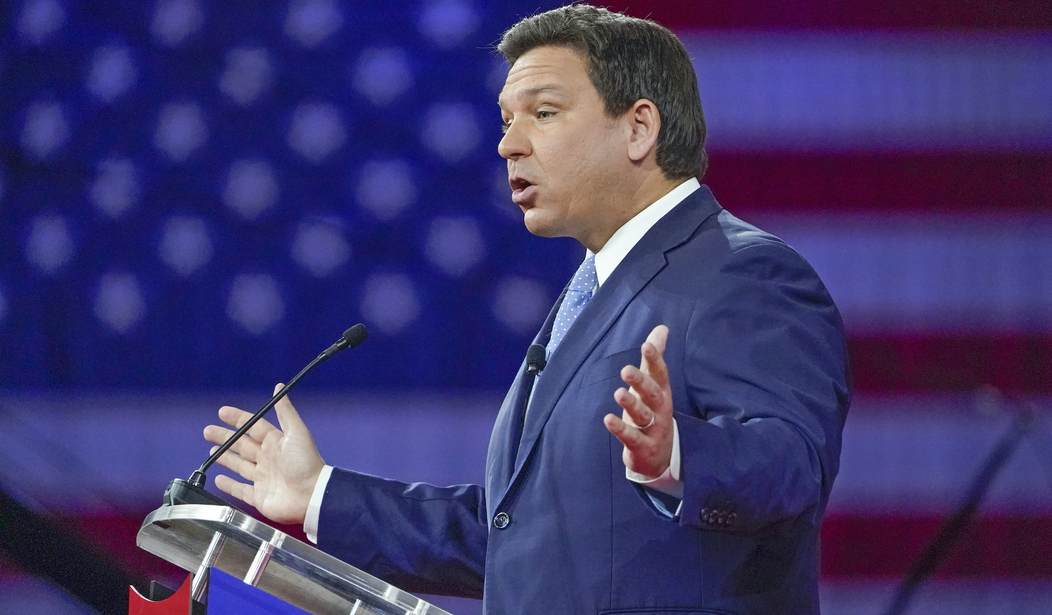Florida Governor Ron DeSantis signed a law on Monday aimed at ensuring the Sunshine State's elections are secure. Officially known as Senate Bill 524, the new law instructs Florida's election officials to take further steps to ensure voter rolls are up-to-date, provides for more transparency in elections and stiffer penalties for fraud, and creates a new office to investigate alleged election irregularities.
The legislation I signed today will continue to make Florida a leader in election integrity by increasing penalties for ballot harvesting, expanding our ban on Zuckerbucks, and establishing an election integrity unit in state government to enforce our laws. pic.twitter.com/FPez9uf1gU
— Ron DeSantis (@GovRonDeSantis) April 25, 2022
The Office of Election Crimes and Security, as it will be called, falls under the Florida Department of State and has multiple duties. In addition to "receiving and reviewing notices and reports generated by government officials or any other person regarding alleged occurrences of election law violations or election irregularities," the office will launch "independent inquiries" and conduct "preliminary investigations into allegations." The Office of Election Crimes and Security will also oversee the Florida Department of State's "voter fraud hotline," and complete annual reports to be sent to Florida's governor and legislative leaders.
Those reports, according to the law, will detail "information on investigations of alleged election law violations or election irregularities conducted" over the previous year. "The report must include the total number of complaints received and independent investigations initiated and the number of complaints referred to another agency for further investigation or prosecution," the law requires.
Recommended
In addition, following an increasing number of reports on so-called "Zuckerbucks" — outlined by the Foundation for Government Accountability here — SB 524 includes a "prohibition on use of private funds for election-related expenses."
Specifically, "[n]o agency or state or local official responsible for conducting elections, including, but not limited to, a supervisor of elections, may solicit, accept, use, or dispose of any donation in the form of money, grants, property, or personal services from an individual or a nongovernmental entity for the purpose of funding any type of expenses related to election administration, including, but not limited to, voter education, voter outreach, voter registration programs, or the cost of any litigation related to election administration."
Florida's new election security measure also contains several provisions to ensure that voter rolls are updated and corrected annually to ensure the names and addresses in the state's voter database are current and accurate to further reduce opportunities for fraud. The stipulations relating to voter registration also limit opportunities for fraudulent ballots to be cast in the name of deceased residents, non-citizens, those adjudicated to be mentally incapacitated, or in races where individuals no longer reside. Looking ahead, the law also directs the Department of State to pursue additional means of verifying a voter's identity when they vote by mail.
The penalties for ballot harvesting were also enhanced by SB 524. "Any person who distributes, orders, requests, collects, delivers, or otherwise physically possesses more than two vote-by-mail ballots per election in addition to his or her own ballot or a ballot belonging to an immediate family member" except as legally allowed — "including supervised voting at assisted living facilities and nursing home facilities" — "commits a felony of the third degree." The new penalty is an enhancement from prior law making such crimes first degree misdemeanors. A similar stiffening of penalties was included for those who sign a petition for another person or use a fake name, and for those who pay someone to collect petition signatures based on the number of forms they collect.
— Ron DeSantis (@GovRonDeSantis) April 25, 2022
As has been seen in Georgia and Texas already, enacting laws that provide greater assurances of secure elections increase voter turnout and participation, contrary to what detractors argued. And while DeSantis, along with other state leaders who've used their authority to sign are maligned by liberals as "controversial" or "polarizing," their courage to do the right thing ends up strengthening the democratic process for their citizens.
























Join the conversation as a VIP Member